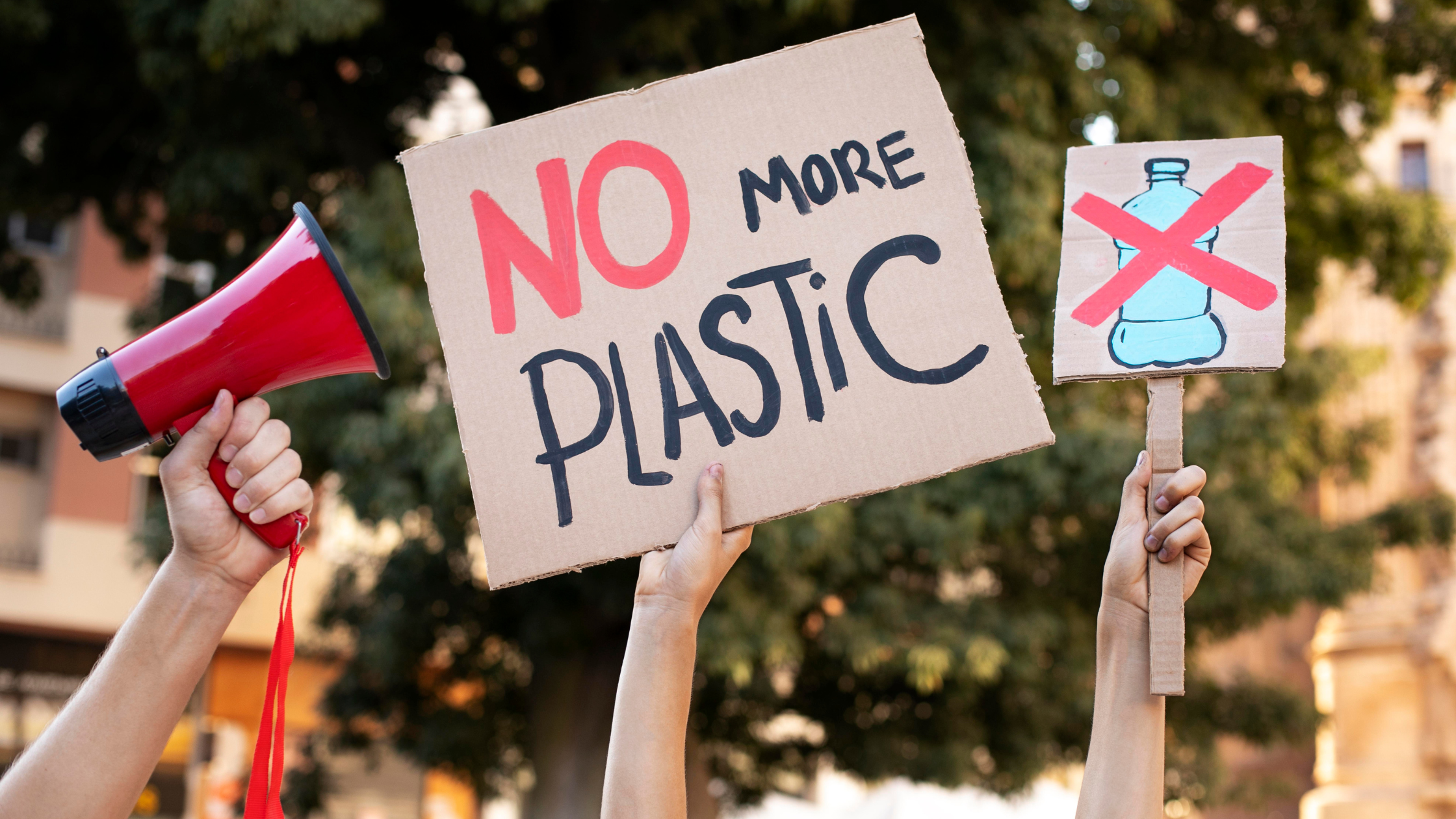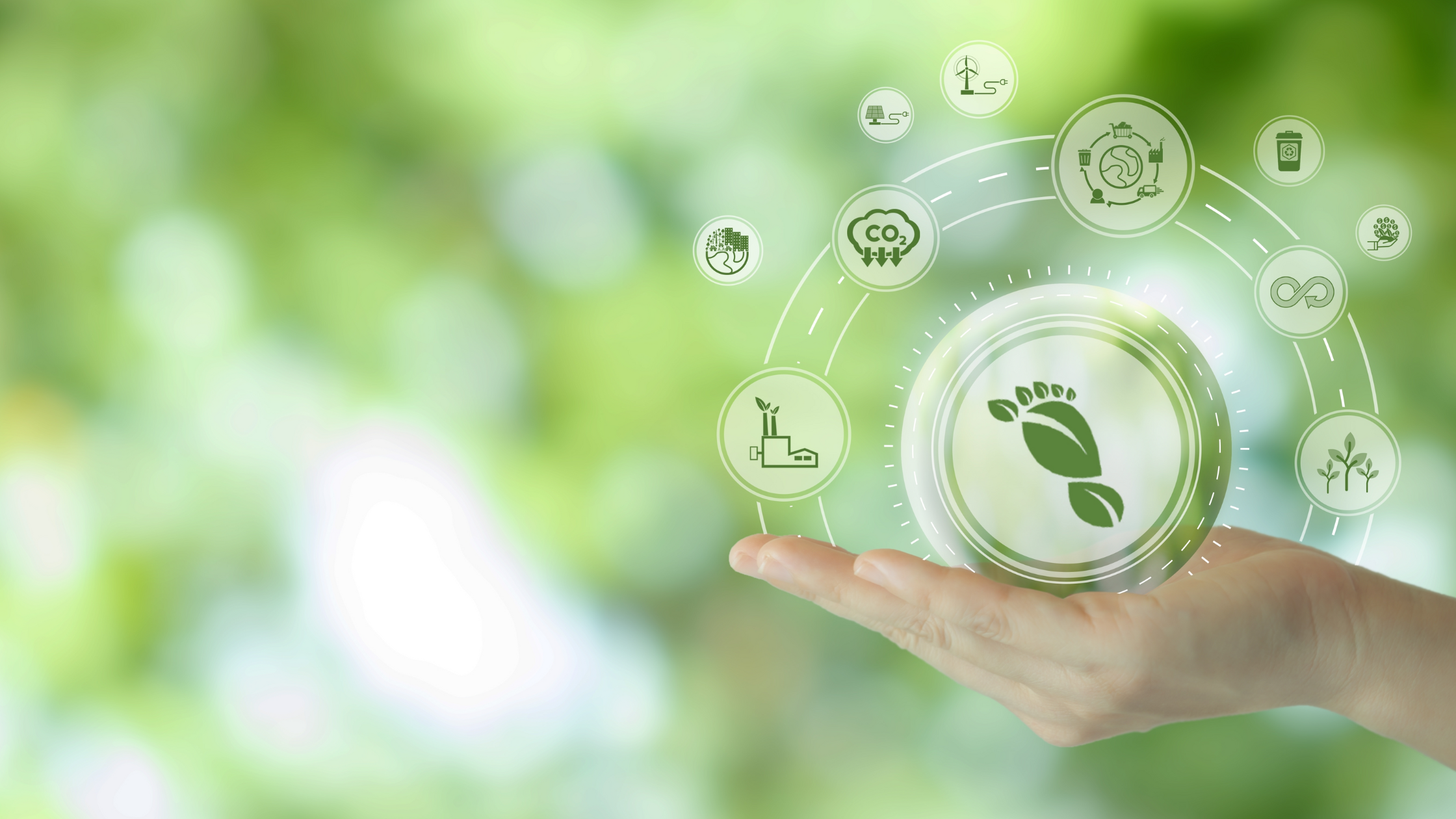
The plastic crisis
Plastic is one of the most widely used materials in the world. However, the thoughtless and excessive use of plastic has led to serious problems for our planet. A look at the statistics on plastic bags shows that on average they are only used for 12 minutes, but take an incredibly long time to decompose - up to 500 years. Only a small percentage of plastic waste is recycled, the majority ends up in landfill or in nature. Every year, we produce 430 million tons of plastic worldwide, and this figure is predicted to triple by 2060 [1].
The impact of plastic on the environment and health
Numerous marine animals, such as turtles and whales, suffer from the ingestion of plastic waste, which often leads to their death. The Great Pacific Garbage Patch (1.6 million km²), an area three times the size of France, serves as a tragic example of this problem. The pollution of our drinking water, our food and our air with microplastics, which is caused by the fragmentation of plastics, is constantly increasing. According to studies, humans ingest around 100,000 pieces of plastic every year, which is equivalent to one credit card per week [2].
Many plastic products contain chemicals such as phthalates and bisphenol A (BPA), which can have negative effects on our health [3]. Phthalates are used in the manufacture of plastic to give it flexibility and resistance to cracking. They are found in products such as plastic toys, food packaging (including plastic bottles), floor coverings and many other everyday items. Scientists suspect that phthalates can disrupt hormone function in the body, which can lead to various health problems. For example, there is evidence that phthalates can affect the reproductive system and cause fertility problems as well as an increased risk of certain diseases such as breast cancer and diabetes.
Practical ways to reduce plastic
Although the campaign only lasts one month, it aims to reduce the use of plastic in everyday life. Here are some ideas for a "plastic-free July":
- Avoid single-use plastic packaging: Instead of using plastic bags, bottles and cutlery, it pays to always have reusable alternatives on hand. Reach for shopping bags made of durable materials such as canvas or cotton that can be used several times. Use stainless steel or glass bottles that can be easily refilled with fresh water and avoid single-use plastic bottles. For take-away meals or picnics, bring your own bamboo or stainless steel cutlery that can be easily washed and reused.
- Choose packaging-free products: When shopping, look for products that are sold loose or packaged in paper, glass or biodegradable materials. Buy fruit and vegetables by weight, without additional plastic packaging. For dry foods, choose products packaged in paper bags or glass jars. Opt for drinks in glass bottles or cardboard packaging instead of plastic bottles.
- Switch to environmentally friendly hygiene products: Toothbrushes, sanitary towels and other plastic products create significant amounts of plastic waste. However, there are many environmentally friendly alternatives. For example, a toothbrush made of bamboo, which is biodegradable and has replaceable bristles. Use reusable sanitary towels that can be washed and reused instead of disposable ones. When it comes to shaving, go for traditional razors with replaceable blades instead of disposable razors.
- Minimize plastic food packaging: When preparing meals, it makes sense to avoid plastic packaging, bags and containers for storing food. Instead, environmentally friendly alternatives should be advocated. Store food in glass containers that are durable, easy to clean and suitable for multiple uses. Another option is to use waxed fabric to wrap food. This flexible, wax-coated fabric allows you to shape and wrap food, creating natural packaging.
- Recycling and upcycling: If plastic waste cannot be avoided, make sure to recycle it properly. Separate your waste and dispose of it at local recycling centers to contribute to the processing and reuse of plastics. It is also advisable not to simply throw away plastic items, but to upcycle them. Plastic bottles can be turned into flower pots, for example, and plastic packaging can be used as containers for storing various small items.
By applying these practical methods, you can effectively reduce plastic in your daily life. Your commitment can also inspire others to take similar steps.
Join the Plastic Free July Challenge and let's strive for a sustainable, plastic-free future together!
[1] https://www.unep.org/news-and-stories/story/global-movement-against-plastic-pollution-millions-seek-solutions-world
[2] https://wwf.panda.org/wwf_news/?348375/Plastic-ingestion-by-humans-could-equate-to-eating-a-credit-card-a-week
[3] https://efsa.onlinelibrary.wiley.com/doi/10.2903/j.efsa.2023.6857



